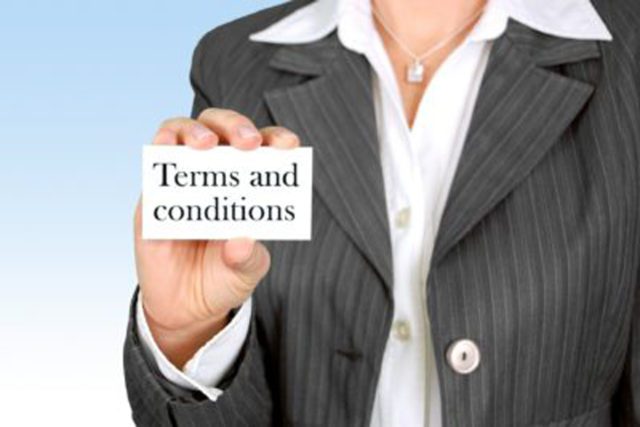What is negligent misrepresentation?
Negligent misrepresentation is when an individual unknowingly makes a false statement—which they should have known was false—with the intent that another person relies on the statement, causing the other person to suffer harm. Examples include making false statements or representations in a contract or exaggerating the value or quality of goods or services. Importantly, negligent misrepresentation does not require the plaintiff to prove that the defendant knew of the falsity of the representation, unlike a claim for fraudulent misrepresentation.
Need help with a negligent misrepresentation? Schedule your consultation today with a top business litigation attorney.
What legal issues typically arise related to negligent misrepresentation?
The following disputes are among the most common to negligent misrepresentation:
- A seller misrepresents the condition of a property to induce a prospective buyer to purchase it. For example, perhaps the seller misrepresents the roof’s age or the HVAC system’s state.
- A manufacturer tells a distributor that a particular product is safe when the product is, in fact, defective.
- A used car salesman tells a buyer that a vehicle has never been in an accident, even though the car sustained a severe crash and underwent significant repairs.
- A merchant falsely informs a customer that a product suits a specific task.
What are relevant laws related to negligent misrepresentation in Florida?
Both statutory law and common law govern negligent misrepresentation claims. Statutorily, section 95.11(3)(j), Florida Statutes, governs how soon claimants may bring a negligence action.
As for common law developments, Florida courts recognize claims for negligent misrepresentation in many contexts, including retail, manufacturing, contract law, professional services, and property transactions. This case law has been critical in establishing what must be proven by the plaintiff and what defenses are available to the defendant in a negligent misrepresentation case. One example includes the Florida Supreme Court case Gilchrist Timber Co. v. Itt Rayonier, where a timber company purchased a large tract of land based on the seller’s representation that the land was zoned for agricultural use. 696 So. 2d 334 (Fla. 1997). The timber company sued the seller for damages. The Supreme Court outlined the necessary elements of a negligent misrepresentation claim and found the seller liable.
What is required to prove a case of negligent misrepresentation in Florida?
The elements of a negligent misrepresentation claim are:
- False statement: The defendant made a statement concerning a material fact that the defendant believed to be true but was actually false;
- Negligently made: The defendant was negligent in making the statement because the defendant should have known the statement was false;
- Intended reliance: The defendant made the statement with the intention that the plaintiff would rely on it;
- Plaintiff’s reliance: The plaintiff reasonably relied on the statement; and
- Injury: The statement caused the plaintiff to suffer harm.
When a set of facts is appropriate to meet the requirements of negligent misrepresentation, there are many paths a claimant may take. We are value-based attorneys at Jimerson Birr, which means we look at each action with our clients from the point of view of costs and benefits while reducing liability. Then, based on our client’s objectives, we chart a path forward to seek appropriate remedies, such as:
- Compensatory damages
- Injunctions
- Cancellation or rescission of the contract
To see what actions may be available for your unique situation, please contact our office to set up your initial consultation.
What are common defenses to negligent misrepresentation in Florida?
The primary defenses to negligent misrepresentation in Florida include:
- Comparative negligence: A defendant may be able to reduce or eliminate their liability when the plaintiff was likewise negligent in failing to discover the falsity of the misrepresentation.
- Defendant’s intent: The defendant may assert they did not intend for the plaintiff to rely on the misrepresentation.
- Immateriality: The defendant could contend that the misrepresented fact was immaterial.
- Laches: The plaintiff unduly delayed in bringing the action.
- No damages: The defendant may claim that the plaintiff did not suffer any damages due to their misrepresentation.
- Statute of limitations: The statute of limitations, typically four years from when the facts giving rise to the claim were discovered or should have been discovered with due diligence, may bar the plaintiff’s claim.
When defending against a negligent misrepresentation claim in Florida, one core strategy is to focus on disproving the element of intent by providing evidence of the defendant’s actual intent of giving a gratuitous opinion. Another core strategy requires proving that the plaintiff did not justifiably rely on the misrepresentation because they did not conduct appropriate due diligence.
To see what defenses may be available for your unique situation, please contact our office to set up your initial consultation.
Have more questions about a negligent misrepresentation-related situation?
Crucially, this overview of negligent misrepresentation does not begin to cover all the laws implicated by this issue or the factors that may compel the application of such laws. Every case is unique, and the laws can produce different outcomes depending on the individual circumstances.
Jimerson Birr attorneys guide our clients to help make informed decisions while ensuring their rights are respected and protected. Our lawyers are highly trained and experienced in the nuances of the law, so they can accurately interpret statutes and case law and holistically prepare individuals or companies for their legal endeavors. Through this intense personal investment and advocacy, our lawyers will help resolve the issue’s complicated legal problems efficiently and effectively.
Having a Jimerson Birr attorney on your side means securing a team of seasoned, multi-dimensional, cross-functional legal professionals. Whether it is a transaction, an operational issue, a regulatory challenge, or a contested legal predicament that may require court intervention, we remain a tireless advocate every step of the way. Being a value-added law firm means putting the client at the forefront of everything we do. We use our experience to help our clients navigate even the most complex problems and come out the other side triumphant.
If you want to understand your case, the merits of your claim or defense, potential monetary awards, or the amount of exposure you face, you should speak with a qualified Jimerson Birr lawyer. Our experienced team of attorneys is here to help. Call Jimerson Birr at (904) 389-0050 or use the contact form to set up a consultation.

We live by our 7 Superior Service Commitments
- Conferring Client-Defined Value
- Efficient and Cost-Effective
- Accessibility
- Delivering an Experience While Delivering Results
- Meaningful and Enduring Partnership
- Exceptional Communication Based Upon Listening
- Accountability to Goals











